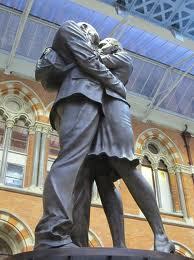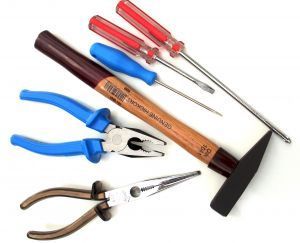P.A. Wilson's Blog, page 28
June 29, 2012
What makes a great romantic heroine?
I’m starting a new series of books and this time it’s all about the romance. I tried this years ago and it didn’t really work out. I didn’t know how to make the feelings real. Now I’ve learned how to write a whole novel, I think I’m ready to dip into this genre again. Now I find myself asking what I want my heroine to be – is she like Bella or like Scarlett? 
What’s the difference?
Bella is a great passive heroine. She wants someone to help her, to save her to make her feel as though she is worthwhile. This means things tend to happen to her.
Scarlett on the other hand has a goal throughout the entire book. It changes, but against the backdrop of the Civil War Scarlett is taking action to achieve her goal. This means things tend to happen because of her.
Does it matter whether the heroine is active?
Good question. I think when we look at writing today, heroines are active. Katniss doesn’t wait around for someone to make everything better, she fights for what she wants (I know The Hunger Games is not a romance, but it’s a good example). Yes, circumstances keep going against her, but that’s the villain making things difficult. Every time she thinks she’s safe, the rules change. The most compelling stories are about the hero/heroine struggling against an external force that keeps fighting back.
A passive heroine (or hero for that matter) doesn’t fight back, someone always helps them through the difficulty. I think there’s a place for the passive heroine, but it’s not easy to do a good job keeping the story going if they don’t start fighting back.
What about character growth?
A character who starts out being blown around by fate gets interesting for me when they start to learn about themselves. In the Bella example, what if she learned that she was causing most of her own problems and throughout the stories morphed into more of a Buffy than a Bella. Now that’s character growth.
In romance the heroine often changes in the opposite direction these days. An independent strong woman learns how to depend on a man and her life is enriched because of it.
For me, a romance needs to have characters who are strong in their own right and then become stronger because of the love. I know for other people romance is about surrender, letting someone else take the responsibility for being in control.
Is there a right answer?
Now, that’s the thing about romance – on the page or in real life – it’s all about what gets you through the night. Romance is about fantasy, sometimes letting someone take control is the right fantasy, sometimes taking control is what you want.
What would you prefer in your next romance?
June 27, 2012
Do you wish your favorite stories turned out differently?
I sometimes love a story until the end and then I find myself dissatisfied all of a sudden. It’s not that the ending is badly written, it’s just that I wanted it to be different. Some movies that came out on DVD recognized this and offered alternate endings that the viewer could watch. I never found any of them satisfying either.

Why some endings leave me wanting more or different
I think there are three reasons that I find an ending doesn’t satisfy me.
Denial – the book is so good I don’t want it to end. These are the books I read over and over again. It’s because I don’t want to let the world go. I want to keep connecting with the characters and experiencing their disasters and successes over and over.
I’m not the target reader – some great books are written for a specific reader group and become universally popular. The book is great, but the ending is going to satisfy the target readers. An example of this is The Hunger Games. I’m a bit outside the YA reader age group. I loved the books and the ends of the first two were fabulous. I finished them and immediately bought the next one on my Kindle. The series end for me was too pat, too much tied off nicely.
The ending isn’t set up through the book – endings, good or bad, need to be supported through the story. It needs to be subtle and only obvious in hindsight. This is a particular bug for me when it comes to a mystery. When the big reveal comes, I should go “What the…. of course how did I miss that?”. If the killer is the transgendered cousin from Australia who joined the cast as the lovely barmaid a chapter before the end, that’s cheating (I’m looking at you Agatha Christie).
Endings are hard to write sometimes
As an author, I often wimp out on my endings in the first version. I rely on the person critiquing or editing to call me on it. When I wrote Closing the Circle, I was told to make the ending more punishing. The new Charity Deacon Investigation, Greed. has had the ending changed three times. My critique partners are quite determined to make me vicious.
What ending would you rewrite?
Here’s your chance. Put in a comment that explains how you would change the ending of your favorite book. If it’s new, try to stay away from explicit spoilers – or put SPOILER ALERT at the beginning.
June 25, 2012
Is your life interesting enough to become a best selling memoir?
My answer to that question is no. I don’t understand why someone would find my life particularly interesting. I was alive when a lot of interesting things happened, space landing, color TV, Kennedy shot, Berlin Wall built and torn down, to name a few. But so were millions of people. I emigrated. I had a ‘normal’ childhood – I measure normal by the ‘overprotective parents and the battle of the eldest child for freedom’ standard.

What makes the difference between “I was there” and a great memoir?
I think it has to do with more than being a passive attendee. I think great memoirs are about participating. Politicians and actors and other entertainers (you must find politics entertaining or else you just might cry) have stories to tell about how they changed the world. How they overcame the odds. How they would do things differently. Some are great stories, some are not worth the time you put in reading them.
Survivor memoirs
There is something about a survivor memoir that gets interest. Surviving sexual, physical or emotional abuse tells the world you have something different. So many people don’t survive, they collapse under the awful weight of the past and live with a burden no one can help carry.
A survivor memoir can help other people survive. Adults who were abused and found a way to live a full and happy life have something to teach. They found a way to heal the damage. They have a happy ending.
Overcoming addiction memoirs
Like the survivor memoirs people who have overcome addiction have a story that can help people still stuck there. Their stories take us to hell and back, always an exciting trip when it’s happening to someone else. The most interesting (to me anyway) are the ones that reveal a talent or passion that was being eaten by the addiction.
I was more than just there historical memoirs
So, like I mentioned above, I was alive for a lot of the key milestones of recent history. Was I there? I don’t think so. I experienced them as a spectator. But the number of people who were there gets smaller and smaller as time passes. Fifty years ago the Guggenheim opened in New York, Castro defeated Batista, and the Dalai Lama fled China. If you were a participant, or those events changed your life, your story could be interesting.
So, what’s your answer? Is your memoir going to hit the best seller lists?
June 23, 2012
Book Reviews, who are they for?
 I’m participating in a discussion on Book Junkies’ Facebook group. The first question that was ‘what do authors really want from a review?’ It was interesting to me that a reviewer might be concerned with what the author wants.
I’m participating in a discussion on Book Junkies’ Facebook group. The first question that was ‘what do authors really want from a review?’ It was interesting to me that a reviewer might be concerned with what the author wants.
I’m not talking about professional reviewers – they have a lot of interests to deal with and the author may not even get on that list. I’m talking about book bloggers and review sites and people who post reviews on places like GoodReads, Shelfari, and Amazon.
Purpose of a book review
I think a book review has one core purpose. To help a reader decided whether or not to buy a book. The information it contains can be anything from a two sentence “wow, I loved it” to an essay on the themes and subtext. If it is focused on helping a reader to decide what books to buy, it will not contain a rant about a misplaced comma, a commentary on the sad state of literature, or the reviewer’s preference for sexy vampires.
Reviews as a benefit to readers
I don’t think there’s any doubt that a lot of books are purchased because of reviews. As someone who looks at the one star reviews of books on Amazon, I can tell you that I’m more prepared to take a chance on a book that has a a few not so great reviews than one that only has five star. Let’s face it not everyone LOVES every book.
I also trust people who have given me good information before. The “WOW it was great” reviews only work for me when I’ve built a history with the reviewer.
Reviews as a benefit to writers
Back to the question that kicked off this post. What do writers want from reviews? I can only speak for me and it’s pretty simple. I want you to be honest and respectful of me and my readers. If you hate my book, please just let me know you won’t be publishing a review and why. A post that tears the book apart isn’t a review, because it’s not about readers, it’s about you.
Don’t summarize the story, it’s about recommending a book to read, so leave something for the reader to discover.
Please don’t make sweeping statements about self published authors. It’s not professional to paint an entire group with the same brush. We all know there are people who shouldn’t be publishing their own book. But that doesn’t mean all self published authors are rejects from the traditional publishers and it doesn’t mean we are all unprofessional enough to attack the reviewer.
Reviews as benefits to reviewers
For book reviewers, every review is a layer of your professional image. Every review is a reason for readers to trust you and every review attracts authors to you. Every review attracts visitors to your site.
If you are hoping to build your online image, keep your image in mind when you do a review.
Authors, readers and reviewers out there, what do you want from a review?
June 21, 2012
It was a dark and stormy – night? day? cocktail?
 The first drafts of my books are all about the story and the characters. When I revise, I put in all the description and I worry about how much to layer on. There are ‘rules’ yes, but no one likes to have story start out with pages of description or a story that feels like it’s set in a vacuum.
The first drafts of my books are all about the story and the characters. When I revise, I put in all the description and I worry about how much to layer on. There are ‘rules’ yes, but no one likes to have story start out with pages of description or a story that feels like it’s set in a vacuum.
The way it all starts
The first draft for me starts with conversation or action.
Reaching for a second ribbon, Madeline tried to focus her magic.
“Why don’t we just do it the easy way?” Lionel asked.
Charity put the file away and glanced to see if the light was on in Jake’s house.
It works for me because I’ve put a lot of effort into getting to know my characters and finding the right setting. I know exactly why Madeline needs to focus her magic. As the reader, you only get the text of the story – we haven’t yet learned how to send you the author’s thoughts. To make the story interesting I have to give the reader context.
What I am afraid I will do
I write with a sense of anxiety that I will overdo the description and drop into some kind of purple prose wormhole.
With the sound of thunder shredding her concentration, Madeline pushed her auburn curls back and firmed her ruby lips. The color of her lips in stark contrast to the pallor of her normally healthy complexion. A trickle of sweat rode the contour of her high cheekbones, she blinked her green eyes to clear them of the glare from the sudden flash of lightning. Feeling the chill of the stone floor through the heavy wool rug and the layers of her cloak and trousers she sighed. Across from her Blu sat waiting patiently, oblivious to the storm and the scent of dust in the air, the tiny monk held a green silken ribbon in hands that rested on his knees. The ribbon contrasting with the deep saffron color of his robe.
A third clash of thunder vibrated in her bones as she reached for the red ribbon that lay in the black wooden chest on the floor between them. The ribbon that would help her focus her magic and join Blu in the spell that protected the house against magical attack.
For me this is too much for an opening. I like things to get started. By things I mean the action.
What the opening passage of a book needs to communicate
I think it needs to put the reader into the action. The setting and mood need to be there so the reader has some grounding, but setting and mood is there to support some kind of action not just because they explain a world. Here’s where I am with the opening passage of the third Madeline book.
Madeline held the yellow ribbon and stared at Blu. The little monk was sitting across from her, a matching ribbon laid across his upturned palms. He was muttering low enough that Madeline had to strain to hear the words so that she could give the right response.
It’s not right yet, but it is closer to what I think an opening needs to be. I think I still have to add some of Madeline’s mood. She’s tired, frustrated and aching to do more than just protect the house. She wants to go after the attacker and make them stop.
What the setting doesn’t need to do
Authors all receive the advice to start a story in the middle of the action. I think that means starting it with action and context. If there is a storm going on but it has nothing to do with the actions that your characters need to take, then your readers don’t care. A storm as a backdrop to scientists explaining why the world will end because the sun will be hidden behind a thick cover of cloud mixed with smoke from fires set by lightning – now that’s important setting.
What do you like?
As a writer I struggle with two things. First I have reading preferences and I have to make sure I don’t just write for me. The harder aspect is that I know everything about the characters and the setting. I need to make sure I put only the essentials on the page.
When you read, what frustrates you about setting? Do you like all the details? Do you like to fill in the details yourself?
June 19, 2012
Are there some books you keep reading over and over?
 There are stories that I read over and over. The books change, I no longer read Gone With The Wind for instance. But, I did read it at least seven times, always turning that last page so see if there was more. Did Rhett come back? I used to reread for entertainment, now I do it to learn more.
There are stories that I read over and over. The books change, I no longer read Gone With The Wind for instance. But, I did read it at least seven times, always turning that last page so see if there was more. Did Rhett come back? I used to reread for entertainment, now I do it to learn more.
What I learn from good stories
Let me be clear, I do learn from bad stories – I don’t re-read them, and in fact, I don’t usually fully read them – but this is about books you read over and over. As a reader, I learn about me when I read a story a second – or tenth – time.
The first read through is for entertainment. I enjoy the ride, I let the author lead me along and don’t really analyze the elements. That is when I know I have a good book.
Now that I’m an author, I read again looking for writing tips. Does the author create characters that I wish I knew. Did they surprise me with twists in the plot. If it’s a mystery did they give me the right clues in a way that allowed me to believe the outcome?
I learned about structure from the Dragonrider series by Anne McCaffrey and I learned about dire stakes from so many high fantasy authors. Barbara Hambly wrote a series of books about a mage battling a force of evil with the help of a woman from our universe. I kept going back to the series because of the relationship between the two main characters.
As a reader do you know why a book keeps calling to you?
Oh, if you could tell us poor authors that we’d all be very happy because we would write the books and you would be dazzled by the entertainment.
I am no longer able to just be a reader. I can’t turn off the writer in my soul. I’ve trained myself to ‘just read’ the first time. But I do wonder why some books catch the attention of readers and others don’t. I don’t get into ‘discussions’ about how a ‘bad’ book gets to be successful. I know that craft is important to writers – and to readers, but you don’t need to look under the hood – but if a book is successful then it’s a good book in my mind.
Ebooks and re-reading
Now that I read only e-books, I haven’t re-read a book in a long time. But, I know that the books are there, I know that I can download them to my Kindle again. I can put a book on my mental re-read list. I still have some books on my shelf in physical format. The Pillars of the Earth – man that is an epic story that pulls me through to the end. Shakespeare’s plays (about 10 of them) and The Lord of The Rings. They remain on the shelf, not because I love the feel or smell of paper, but because I wonder how many more times I will buy them. I’m on my third set of Shakespeare’s work. I’m on my fourth copy of Lord of The Rings and my third copy of Pillars of The Earth.
What books keep you coming back? Why?
June 17, 2012
Do you picture yourself as the hero in your favorite books?
When I create a character for my books, I use pictures of people I find on the Internet. It helps me be consistent when I mention eyes, hair, height – the basics. I don’t often do detailed descriptions in my books because when I read I like to imagine what the character looks like myself.

How describing a character goes
It’s generally pretty easy to describe a character when you write in a third person point of view, that’s when the book is narrated by someone who is not a character. The challenge is when the character is telling the story. And, most of my books are written in first person point of view. When I need to describe a character, I have to do it by having them look in a mirror or glance at themselves in some other reflecting surface. It doesn’t always work well. Most of my characters don’t spend a lot of time in front of mirrors.
For Charity Deacon, I tend to just let her tell the reader what she thinks about her looks. For Quinn, it just doesn’t come up.
Should an author tell the reader what the character looks like?
I don’t think so. The best thing about reading a book, at least to me, is using my imagination. I visualize the character the way I want them to look. I do that with everything in a book. So when an author goes to painstaking effort to find a way to tell me what the character looks like down to the last freckle or crooked front tooth, it gets in the way of me using my imagination.
But you can’t just have blank avatars running through your book
True, but I think you need to know some general things about the character. Charity is a bit above average height and is slim. She has dark hair and it sits long enough to tie back if she needs to get it out of the way. She can tell you that her friend, Lu, is taller and slimmer and more elegant and Asian. She can describe herself in contrast to Lu.
Most of my characters will describe themselves in relationship to other characters. That way I don’t have to make them vain enough to check themselves out in a mirror for the second it takes to tell you the color of their eyes.
To be honest, I do cast my characters when I start writing.
I need to put a person in the shoes of my character until that character becomes real to me. Charity started out as Sandra Bullock – the Speed version. Sam Barton in Closing the Circle started out very much like Booth in Bones. No matter who they are to begin with, my characters become individuals to me very quickly.
I really want you to be able to put yourself in the character’s place if you want. So I give you enough to carry you through if you want to follow my vision, but not enough to get in the way of your imagination.
What do you prefer?
June 13, 2012
Why do people choose certain books to read?
Every now and then a book or movie or television show becomes popular despite breaking all the rules. I’ve always been fascinated by the way people are able to be very vocal about why something doesn’t deserve the attention it gets, but few people are able to say why they chose it and recommended it.

Some examples
There are multiple examples on television. How do reality TV shows like Real Housewives of X survive? In books, the latest hot commodity is 50 Shades of Grey and before that its basis The Twilight Series.
Why have they broken the rules?
These books and shows don’t match the traditional ‘rules of the game’. Reality TV that isn’t a contest defined the market for bad behavior entertainment. The Twilight series didn’t follow the rules of good writing. The heroine was incredibly passive and everything happened to her not because of what she did. 50 Shades of Grey was originally fan fiction of Twilight. I haven’t read it – I don’t believe I have to read a book to know it’s bad, but I do believe I should have some basis for my opinion and I’ve read or heard a few passages of the book. It doesn’t seem to follow the rules of basic grammar or story telling.
Is it really such a big deal?
Personally I don’t think so. You like what you like. As long as I can access what I like in the way of entertainment, I’m not going to berate anyone.
Where I think it hurts is for people who are trying to find a way to be successful. People who are convinced that there is a way to make it happen. They look for reasons why something is successful and it makes them crazy when something is successful despite how bad it is.
What would Shakespeare do?
Whether you think Shakespeare wrote his work or was a front man, I think we can agree that his work has survived. I think Shakespeare would just do his thing in the face of success he couldn’t analyze. He wrote good stories and great characters. He wrote poetry that I like – and I find poetry hard to understand. He didn’t try to follow trends, he made trends happen.
As a writer, I know that I can work on craft – well structured stories with high stakes and compelling characters. What I can’t do is write like someone else. So, while I am fascinated by the success of 50 Shades, I know I can’t write like that. I don’t resent the success of these authors. I know that best seller status is like a hole in one. Great golfers get them and so do duffers because sometimes it’s more about luck than skill.
Advice to writers
Don’t be outraged by other people’s success.
Advice to readers
Read what you enjoy.
June 11, 2012
Finding your way, how do you deal with getting lost
Ah my dear GPS. Like many things in life, when you work, you are wonderful. When you don’t, interesting things happen. Today I spent a lot of time convincing you we weren’t 40 kilometers down the road.

Life doesn’t come with a GPS, so sometimes we find ourselves wandering off the route we planned. Is that always a bad thing?
When getting lost is scary
I have a habit of planning things out. Not always to the extent that I know – or try to control – everything that happens, but enough that I know what I want and how I’m going to get there. I’m getting off the route, sometimes because I choose to and sometimes because something forces me off. I have to admit, being forced off is the scary part. I get forced off because I’m not keeping my eye on what’s going on. I get forced off because I get so tightly focused on what I want to go, and don’t see that other people are making plans too.
When getting lost is fun
When I choose to step off the path. When I have some sense of control or contribution to my diversion. In my writing plan, I stepped off the path and decided to start writing romances. It pushed my writing plan around because the current series all have more books to write. But, I found a way, because I chose the change of direction.
The bottom line
I think the way to become more resilient is to test yourself and step off the path you set once in a while. If you don’t, then everything that gets you lost, or changes your plans, comes from the outside. I have a fear of being lost. Today, my GPS couldn’t find the hotel. I didn’t freak out. I knew I was on the right road, I just turned around and eventually I found the hotel. The thing is I had no idea how long the road was, I just trusted that I would find my destination, or help.
Is it that easy? Not really. Even today, I could not convince my GPS to accept the location. I needed to know that I could get back to the hotel every night this week without having to take a 40K detour. I can’t read directions when I am driving – perhaps due to the speed factor – so I need to rely on my GPS. My solution? I found a restaurant nearby that I could use as my destination. Problem solved.
If things don’t go the way you planned, try looking around for the solution.
June 9, 2012
Do you pay more attention to the messenger than the message?
I read this post today over at Seth Godin’s blog and it started me thinking. Seth is talking about companies who react to the squeaky wheel but don’t fix the problem. I wonder how many of us react to feedback about writing or any other endeavor. Do we react to the message or the messenger?
The situation
In life we get feedback from all kinds of places. At work we get our performance review, at school we had grades. I think it’s also about which people become friends with us. It’s as simple as this. We want something and we either get it or not. If we get it, that’s positive feedback, if we don’t that’s negative feedback.
For an author feedback comes from beta readers and critique groups before you publish and from reviews after you publish. The way to improve your chances for getting good reviews is to listen to the feedback. Oh, and if you are not asking for feedback get it. Look on line for groups if you can’t find writers in your area.
Critique groups, finding the balance
This is a group of writers – they are going to read your manuscript as if they were readers and then give you feedback from a writing craft point of view. Sometimes you need to try out a few groups before you find a critique circle that works for you. It doesn’t have to be all writers in your genre, it doesn’t have to be all published writers. It does have to be people who will give you honest feedback – preferably respectful but honest is the no.1 criteria.
Listening to the messenger is about feeling like you need to justify what you wrote because the person giving the critique must not understand.
Listening to the message is about putting aside your feelings and deciding what information you need to improve your work.
An example: I write mysteries – and other genres – and I would often get the feedback, “obviously this person did it because X”. The group was usually wrong and that made me happy. I was tossing a red herring in and I’d done it well. If I was listening to the messenger, I might have tried to argue them into realizing that they were wrong.
Beta readers
This is a group of readers – they can be authors too – they read your work and give you specific feedback on character, pace and interest, or whatever you ask them to give. These people should be fans of the genre because they need to assess your book against the genre conventions.
An example: Your paranormal romance gets feedback that your vampire should be a werewolf.
If you find yourself thinking that your reader doesn’t get your work, you’re listening to the messenger. You’ve chosen people who read the genre, so they should know what they are talking about.
Listening to the message means that you want to know why the vampire is coming across as a werewolf. Are you making him too forceful? Does your story need him to be that way? Should you rewrite?
Reviews
These are tricky because the previous two groups are there to support you in making your book better. Reviewers may have other agendas. My guess is 95% of the people who review your book are giving an honest opinion. That other 5% may be trying to game the system. I think it’s pretty obvious and easy to find out if that’s happening – check out if they have given other reviews.
Let’s talk about the 95%. You have a choice here. If you are getting a spread of reviews between 1 and 5 stars, your book is probably good. Some people will love it some people won’t. If you are getting a lot of 2 and 3 star reviews and the comments seem consistent, you might want to fix the problem.
Listening to the messenger here is getting into an argument – on the review, on your blog, on other blogs, whatever. Listening to the message means you consider what the reviews are consistently saying. Do they find your character hard to like? Do they find the pacing slow?
Try to be the type of writer who listens to the message, not to the messenger.



